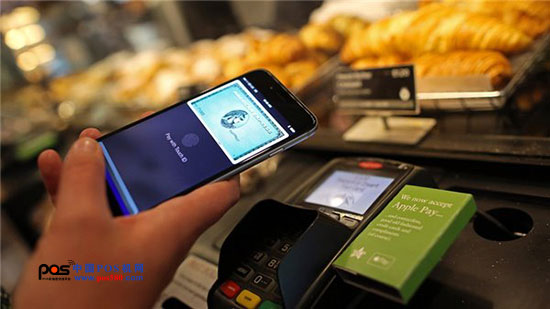Beijing time on November 15th news, according to foreign media reports, market research company eMarketer expects that this year's US store sales will reach about 4.65 trillion US dollars, but mobile payment processing transactions accounted for only 0.6% of them.

In 2014, people were talking about mobile wallets. Before Apple Apple Pay went online in October of that year, the outside world was discussing how quickly American consumers could use smart phones to checkout at the checkout counter.
At the time, banks, payment networks, retailers, wireless carriers, and technology startups were scrambling to develop mobile devices with the goal of using them as POS terminals for digital payments. The value of mobile payments is that the system collects valuable data about consumer buying habits, giving merchants the opportunity to better offer special offers and promotions to target customers.
Now, two years have passed. Ratings company Fitch Ratings cited eMarketer's data in a report that this year's in-store sales in the US will reach approximately $4.65 trillion, but mobile payment processing accounts for only 0.6% of the transaction.
“Although the mobile payment industry is growing rapidly at a low base, mobile wallets are spreading more quickly among US consumers than previously expected by most industry experts,†said Fitch Director Michael Taiano. ) said in the report.
Three reasons for not being able to rise quickly
Taiano believes that there are three reasons for the rise of mobile wallets. First, the existing mobile wallet has not succeeded in bringing real value to consumers, whether it is a checkout speed or a financial reward such as a discount. To some extent, mobile wallets don't solve real problems. In contrast, traditional swipe POS machines are very efficient.
For merchants, mobile payments did not bring them significant financial benefits, and the related costs were not much less than the card payment. The cost of card swiping includes handling fees and pos machine installation costs.
Second, the launch of a large number of mobile wallets will only confuse the cashier, and many cashiers do not support all mobile payment solutions. Third, consumers are now more alert to cyber risks. They don't believe that security features such as tokenization are sufficient to withstand cyber attacks.
Apple Pay takes the lead
Driven by brand strength and a large number of loyal users, Apple Apple Pay is expected to become a leader in this field. However, the popularity of Apple Pay has been very slow. In October of this year, only 4.5% of the surveys conducted by the payment website Pymnts and the retail analysis company InfoScout indicated that they had used Apple Pay to purchase goods.
The retail customer alliance, the Merchant Customer Exchange (MCX), set aside plans to develop a mobile payment application earlier this year. MCX members include large US retailers such as Wal-Mart and Best Buy. Large mobile operators such as AT&T and Verizon Communications have developed a mobile application Softcard based on near-field communication technology, but sold it to Google in 2015, integrated into the latter's Google Wallet, and then went offline.
"Google itself faced challenges when it first entered the mobile payment space with the Google Wallet app, but the company's Android Pay seems to have achieved even greater success," Taiano said.
The most successful system is Starbucks' mobile app, which evolved from a membership card program and still includes benefits that allow customers to book and pay before entering the store, reducing the amount of time customers spend waiting in line. Starbucks mobile app points use electronic storage, and since the system is only available to Starbucks stores, security has also been enhanced.
Taiano said that mobile wallets are likely to have better prospects in markets outside the US, especially those that are still heavily dependent on cash. "In this regard, the popularity of mobile payments has not yet overcome the obstacles of existing payment infrastructure. Compared with the convenience provided by developed countries such as the United States, it has no advantage," he said.
Apple shares fell 2.9% in Monday afternoon trading. The Dow Jones Industrial Average and the Standard & Poor's 500 Index have not changed much.
Paper Edge Protector,Paper Corner Protector,Cardboard Corner Protector,Board Edge Protector
DONGGUAN YEE HUP TRADING CO,.LTD , https://www.dgyeehupack.com